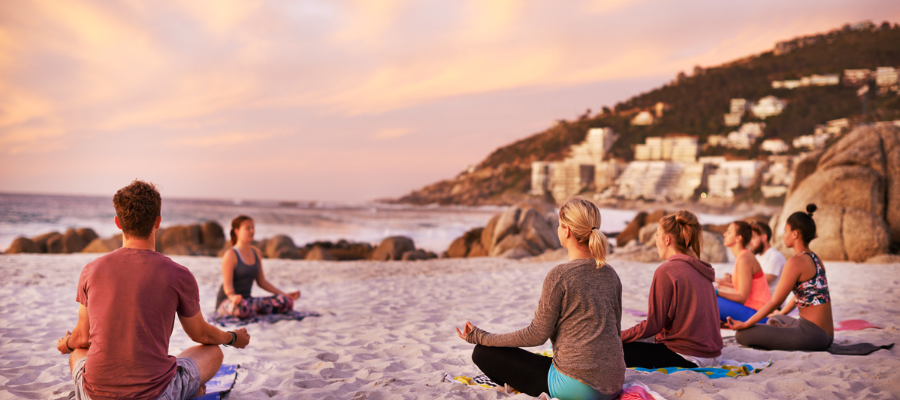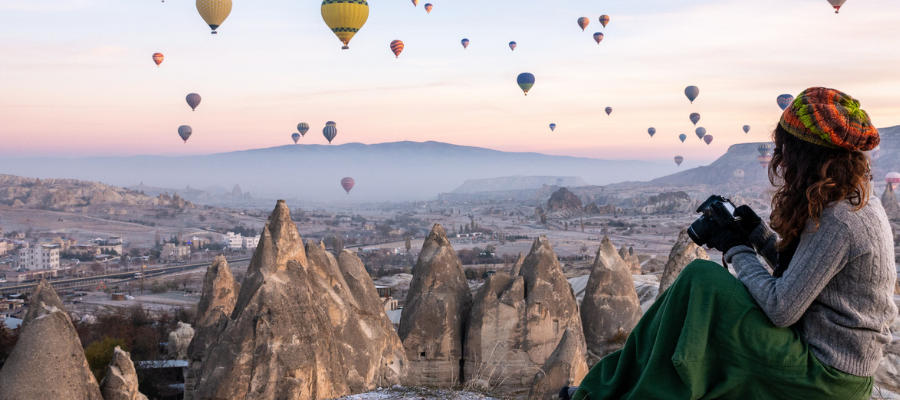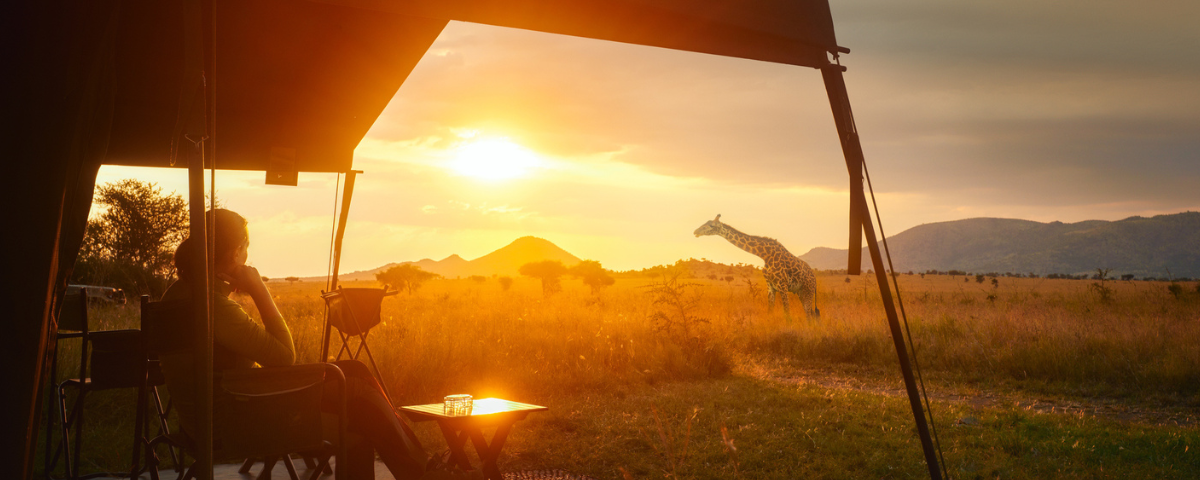Experiential travel, once a niche, has now surged into the mainstream, reflecting a profound demand for immersive and authentic travel encounters. From culinary delights to cultural immersions, adventurous escapades to communing with nature, and even engaging in voluntourism, travellers seek more than mere sightseeing.
This evolution has been a cornerstone of the global consumer movement known as the experience economy. However, as is the nature of progress, we find ourselves transitioning beyond this paradigm into what is being termed the ‘transformation economy’.
In this new landscape, people crave not just experiences, but life-altering journeys. The travel and tourism sector stands as a primary beneficiary of this seismic shift in consumer desires, giving rise to the ‘Transformational Travel’ movement. Coined by the Transformational Travel Council (TTC), which was established in 2017, it is defined as “any travel experience that empowers people to make meaningful, lasting changes in their life”.
The TTC, headquartered in the US, provides facilitation, consulting, and training to help design, guide, and support travellers in their pursuit of personal growth and conscious travel practices.
It emphasises that transformational travel is more than a journey, rather a philosophy that connects travellers to their true selves and others, fostering a sense of purpose and belonging.
In essence, travellers are utilising their journeys as tools for self-expansion, reflection, and self-improvement. According to TTC, to travel better is to live better.
While quantifying the value of the transformation economy remains elusive, Stone Mantel, The Experience Strategy Company, and a TTC partner identifies it as the fastest growing segment in the travel industry. Surpassing services and conventional experiences, it now represents a staggering US$208 billion market opportunity in the US alone
TTC’s mission is that “travel that raises the collective consciousness of humankind to regenerate and thrive”, suggesting that travel can be a way to improve ourselves, the climate, and one’s longevity. It proposes that transformative travel is more than passively traveling from place to place. It requires connecting with others, being pro-environmental, improving conservation efforts, and providing time for self-reflection and inner meaning. In other words, travel can be engaging and provide pleasure, but also be outcome-based.

The opportunity in numbers
Broadly speaking there are four types of transformational travel: cultural connectivity; environmental connectivity; tourist engagement and self-reflection, learning, knowledge and creativity; but each person’s transformation through travel will be unique.
Many of these are intertwined with already established global travel trends, most notably wellness tourism, medical tourism and responsible tourism.
And while transformational travel is yet to be defined by a market value, we know how much the other sectors are worth in their own right.
Recent research by the Global Wellness Institute (GWI) reveals the wellness tourism market is forecast to be worth more than US$1 trillion in 2024, up from $868 billion in 2023, and is expected to reach the $1.4 trillion mark by 2027.
Its 16.6% annual growth rate over the next five years will make it the second biggest future growth leader among all wellness sectors, trailing only wellness real estate at 17.4%.
Wellness trips now account for 7.8% of all tourism trips, says GWI, but represent a much higher 18.7% of all tourism expenditures.
International wellness tourists on average spent $1,764 per trip, some 41% more than the typical international tourist, while spending premium for domestic wellness tourists is even higher, at 175% more than the average domestic tourist (or $668 per trip).
The Middle East and North Africa region has been the number one recent growth leader in wellness tourism spending, according to GWI, with 61.5% annual growth from 2020 to 2022. Average expenditures per trip have also grown the fastest in the MENA region, reaching $1,354 per wellness trip, which exceeds the level in North America.
Meanwhile, the global medical tourism market was estimated at $115.6 billion in 2022 and it is expected to reach around $346.1 billion by 2032, poised to grow at a compound annual growth rate (CAGR) of 11.59% from 2023 to 2032, says Precedence Research.

A new transformative take on wellness and medical tourism
Transformational travel puts a new spin on both wellness and medical tourism. People are no longer just travelling to receive treatments like dental care, cancer therapies, cosmetic surgery, or fertility procedures, but to improve their attitudes, values, and behaviours; heal from mental illness; discover a purpose in life; find inner peace; improve relationships; and expand their minds.
The search for internal self-awareness has seen the rise of plant medicine retreats where guests are offered a range of spiritual, emotional and physical healing methods. Involving the use of natural plant-based substances, participants are guided by trained facilitators in a safe and supportive environment. They connect with nature and people in new ways and gain new perspectives on life.
With people looking to live longer, encouraged by best-selling books such as Outlive and the hit Netflix documentary Live to 100: Secrets of the Blue Zones, longevity stays designed to help guests prolong their lives are becoming increasingly popular too.
Between 2021 and 2022, venture-capital investment in longevity clinics more than doubled from $27 million to $57 million globally, according to analysis from longevity research and media company Longevity.Technology.
One longevity retreat trailblazer is SHA Wellness Clinic, which is dedicated to improving and extending guest health through a fusion of ancient Eastern disciplines and cutting-edge Western techniques. The original SHA is located in Alicante, Spain, while a second property recently opened in Mexico. SHA’s third wellness clinic will be located in the UAE and is set to open next year (2025). Regular hotels and resorts are jumping on this trend too, offering bio hack stays that promise to extend life and optimise health. Dubai’s Atlantis The Royal offers the AEON Longevity Stay Package, encouraging your body to “heal and hack the ageing process”. The adults-only offer encompasses regenerative wellness treatments and medicines and in-depth personal assessments with doctors and therapists.

UAE company leads region’s transformational travel charge
In the UAE, former hotelier Niamh Keohan is the trailblazer of the transformational travel movement having launched a booking and content platform for ‘life-changing’ experiences in 2019.
Dubai-based We Love Transformational Travel was “born from a core belief that our bold, brave personal goals can be intertwined with a passion for travel, helping us get the most out of every trip we take – whether its setting healthy habits, healing from trauma, or opening our hearts to connections”.
Keohan, who is the TTC’s Middle East ambassador, describes transformational travel as a “new chapter of travel”, driven by people understanding that “travel can be a catalyst for positive change in their lives and the lives of others and depending on what stage of life you are at”.
Keohan says We Love Transformational Travel (WLTT) is currently witnessing strong demand for health and fitness focused experiences, a trend she will discuss in detail at this year’s Arabian Travel Market as a key speaker on the panel session entitled Find your 2024 niche: Top trends to tap in 2024.
Boxing camps, boot camps and group fitness experiences are popular, she says, and it’s not just about fitness, but meeting like-minded people and making life-long friendships, with solo travellers often embarking on this type of travel.
Men-only and women-only retreats are also getting booked out. Male-bonding expeditions include camping in the UAE desert or hiking in the hills of Ibiza where men “go back to basics and find their inner sage”, while women are increasingly seeking menopause retreats in destinations such as Italy, the Philippines, the US and Mexico, learning how to embrace this stage of their lives.
In the UAE, retreats dedicated to women are on the rise. A new members-only wellness club for women in Abu Dhabi is promising patrons the chance to “rest, repair, reset and renew’. Tapping into the trend for feminine self-care, Kintsugi Space on Al Reem Island describes itself as: “Part healing hideaway, part uber-tech salon, part wholesome café, part artistic refuge, part casual cosmic community.” Clients gain access to a blend of Western and ancient Eastern healing methods, ranging from hyperbaric chambers and LED beds to Ayurveda and sound bath dancing.
Keohan has also noticed the popularity of longevity retreats, regularly booking clients into SHA’s Alicante property, as well as grief retreats that help guests to live with bereavement.
Getaways to foster strong family connections are in demand too, with WLTT receiving requests from parents who want to disconnect their children from their devices.
Some are taking extended trips of around a month to destinations like Mexico and Peru where the parents work remotely and their children attend local schools.
“The family is introduced to new cultures and ways of life and experience a transformation together,” Keohan explains.
Travel to heal and improve relationships is another hot trend, as well as breaks to help people discover self-love. WLTT also offers packages for success and leadership, purpose and impact, learning and upskilling and much more, connecting travellers to its carefully selected partners – “transformers” – in destinations across the Middle East and all over the world.
They are all designed to help travellers bring back their experiences and apply them to everyday life.

The Middle East opportunity
With its natural wonders, many UNESCO protected, from deserts to mountains, oases to crystal-clear waters, the Middle East boasts an abundance of locales ripe for the establishment of transformational travel experiences. This potential is further amplified by a thriving investment environment, with governments prioritising both public and private sector investment in travel and tourism as a key driver of GDP growth, as well as a robust hotel development pipeline, one of the largest and fastest-growing globally.
Crucially, the Middle East also presents a receptive audience for transformational travel, characterised by individuals with both the means and the eagerness to explore. Its demographic landscape includes a substantial number of High Net Worth Individuals, many of whom are aspirational and actively seeking sources of inspiration – and transformation.
The rise of the global transformational travel movement presents lucrative opportunities for all stakeholders within the Middle East’s travel and tourism ecosystem. Destinations, developers, hoteliers, experience creators, and tour operators are extremely well-positioned to capitalise on this burgeoning trend.
Discover more at Arabian Travel Market Dubai
The market leading travel and tourism event brings the whole world together in Dubai, UAE.
Join us from 28 Apr – 1st May at Dubai World Trade Centre.


